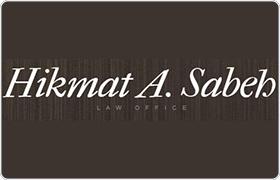North Bergen Real Estate Lawyer, New Jersey
Sponsored Law Firm
-
 x
x

Click For More Info:
-
Law Office of Hikmat A. Sabeh
26 Park Street Suite 2076 Montclair, NJ 07042» view mapReal Estate Law Effective Legal Advice
We guarantee effective and aggressive representation. Our reputation and history of successful litigation speaks for itself.
800-881-0241
Dennis S. Deutsch
Election & Political, Business Organization, Eminent Domain, Construction
Status: In Good Standing
FREE CONSULTATION
CONTACTMichael J. Dillon
Construction, Transportation & Shipping, Civil Rights, Medical Malpractice
Status: In Good Standing
FREE CONSULTATION
CONTACTFREE CONSULTATION
CONTACTPaula M. Dillon
Construction, Transportation & Shipping, Civil Rights, Medical Malpractice
Status: In Good Standing
Alan L. Krumholz
Construction, Transportation & Shipping, Civil Rights, Medical Malpractice
Status: In Good Standing
Alberto Soto
Criminal, DUI-DWI, Traffic, Landlord-Tenant, Divorce & Family Law
Status: In Good Standing
FREE CONSULTATION
CONTACTAntonio Angelo Gonzalez
Divorce & Family Law, Criminal, Accident & Injury, Real Estate
Status: In Good Standing
 Hikmat A. Sabeh Montclair, NJ
Hikmat A. Sabeh Montclair, NJ Practice AreasExpertise
Practice AreasExpertise
